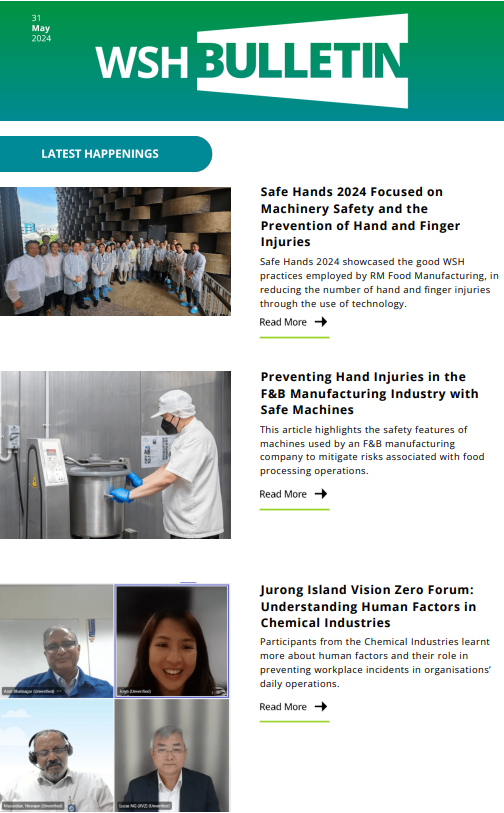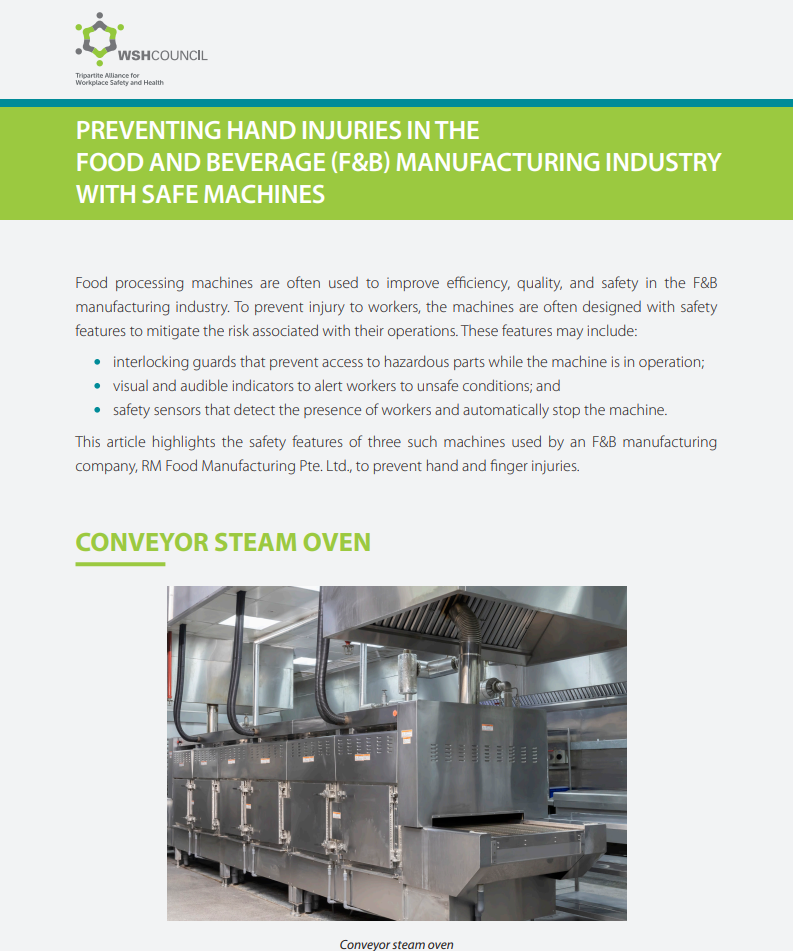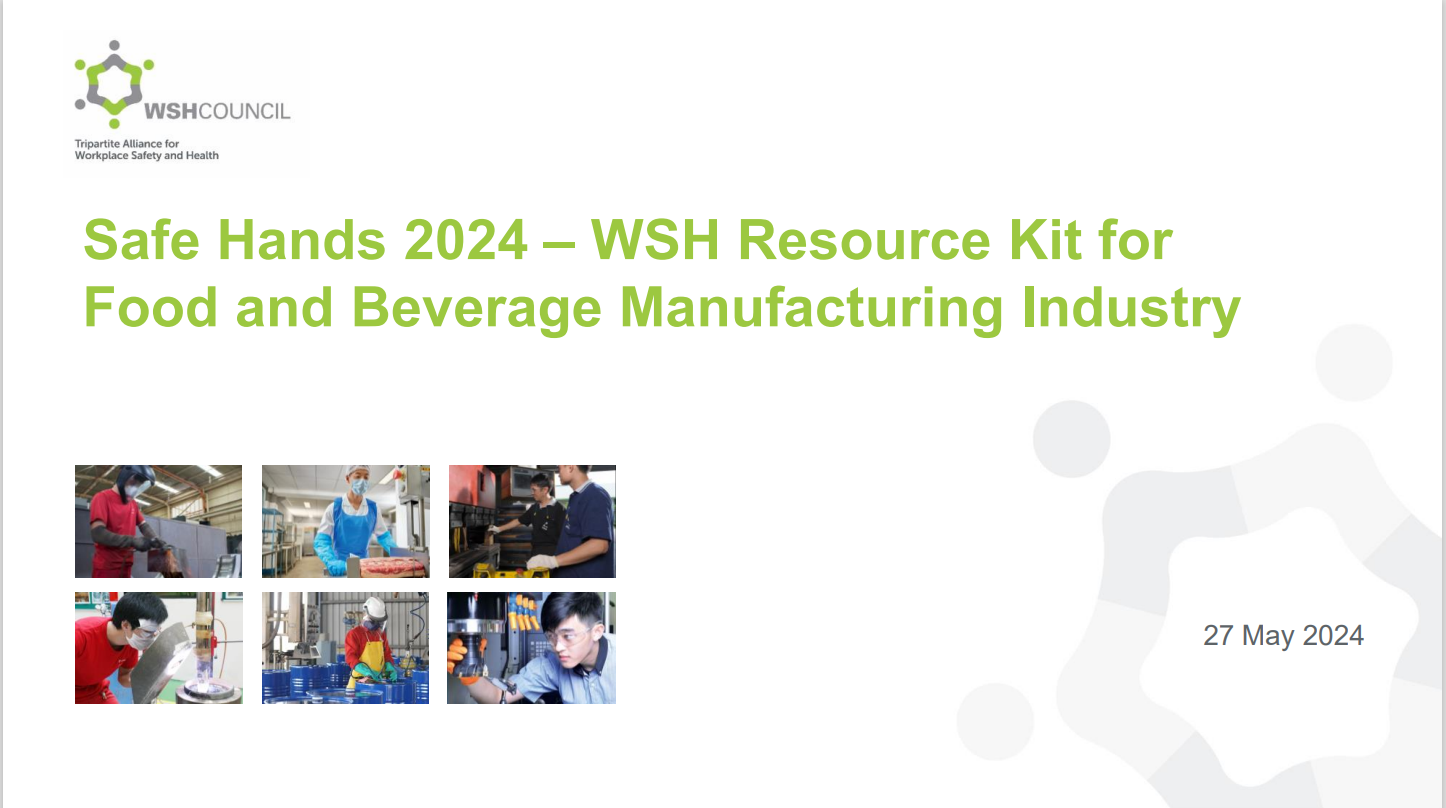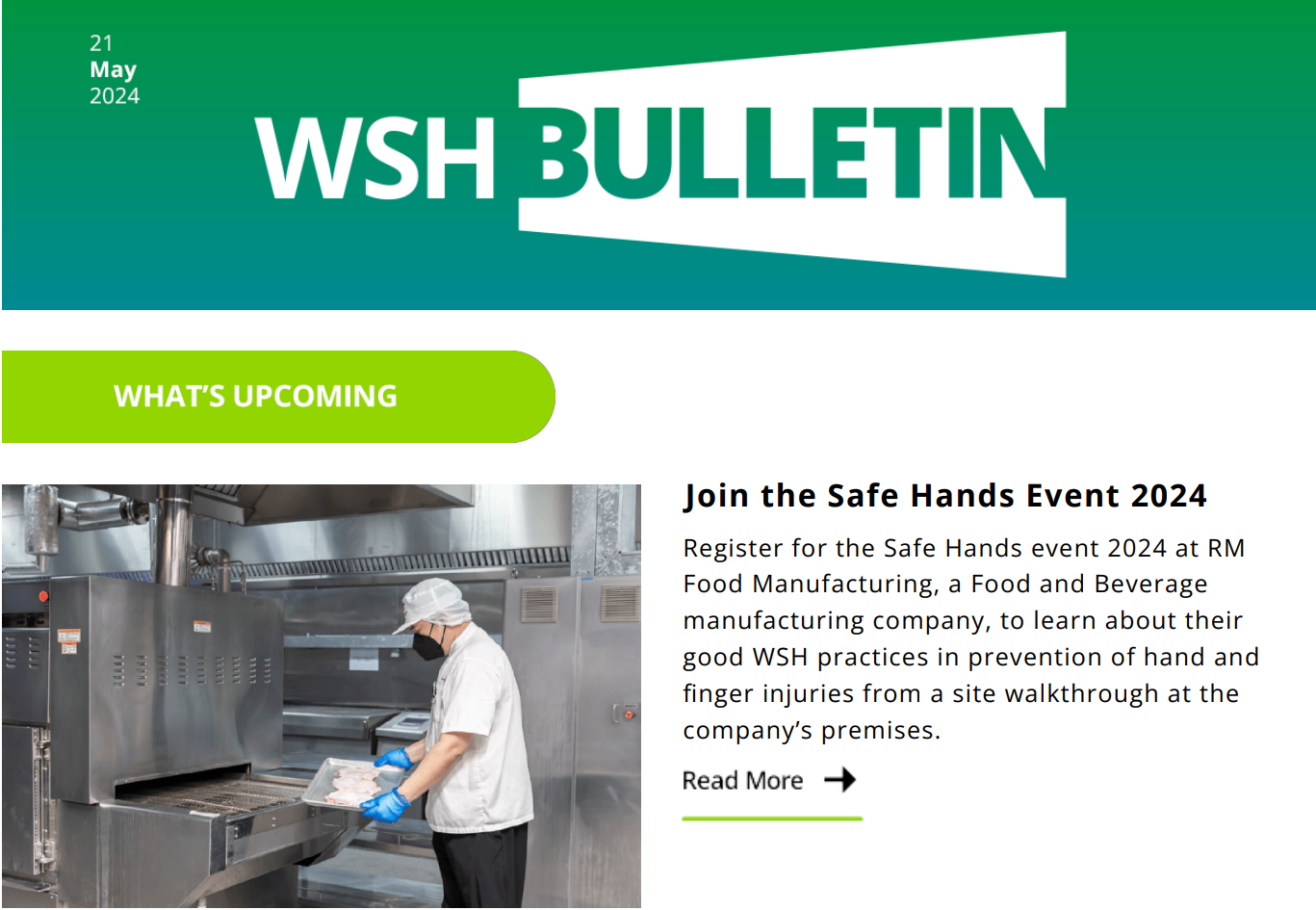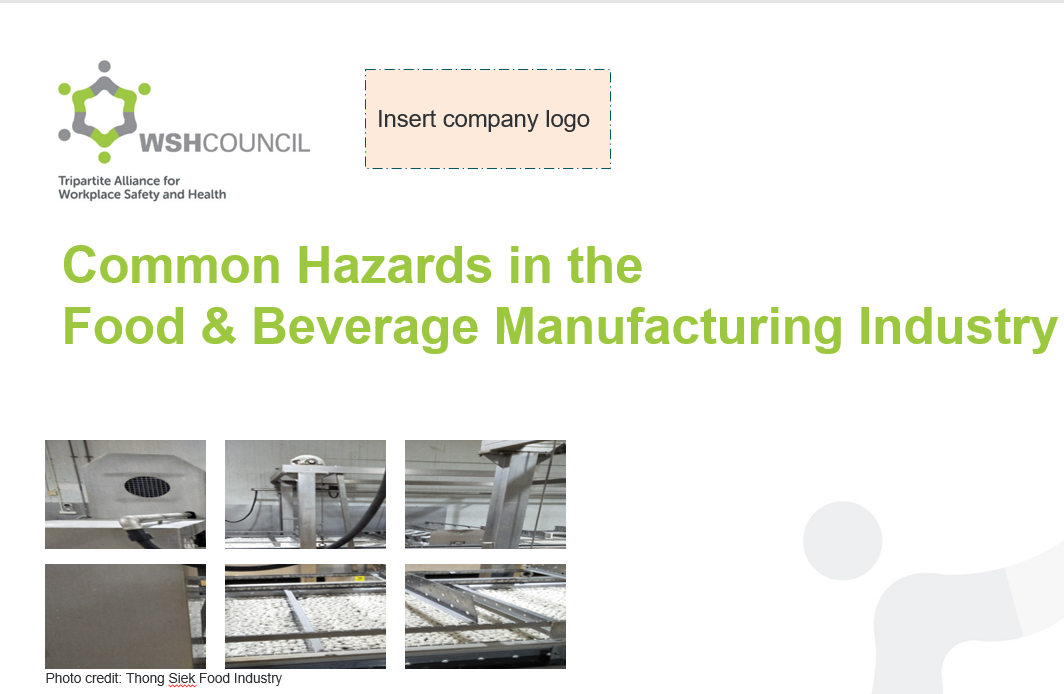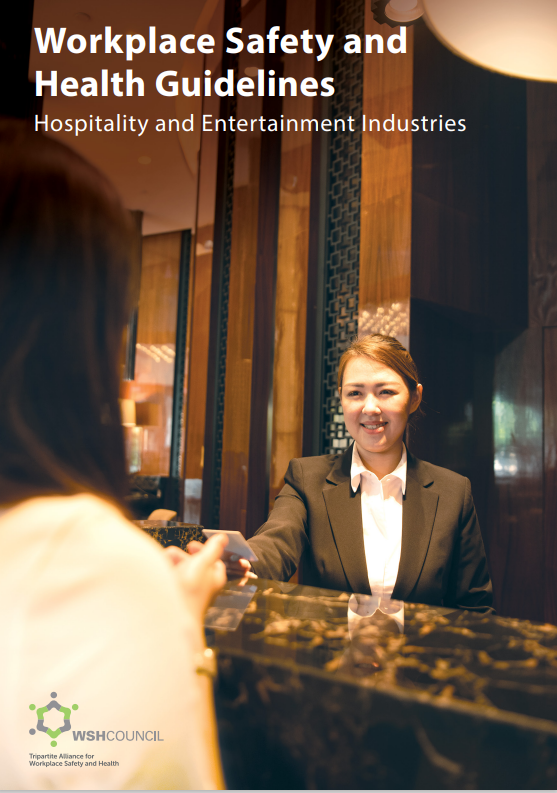Preventing Common Kitchen Hazards
Find out more about common hazards in the kitchen. And learn how you can prevent and manage them in the workplace.
Common Kitchen Hazards
Unattended hazards in the kitchen can often result in accidents. These accidents include slips, trips and falls (STF), which is one of the top workplace injuries for the food and beverage industry. Fires and explosions are also a key hazard due to the abundance of flammable materials such as cooking oils, dish towels and flour in the kitchen.
Examples of common kitchen hazards include:
- Wet or oily floor
- Uneven or loose flooring
- Obstructions on the ground (boxes and bins)
- Gas accumulation and vapour cloud formation
- Unattended cooking
Preventing Kitchen Hazards
As an employer, you can greatly reduce the risk of incidents by making simple changes in the kitchen. Below are examples of risk control measures you can adopt:
Introduce a reporting culture
In general, you should:
- Establish a system or channel for employees to report hazards or near misses.
- Encourage employees to report unsafe conditions or practices in the kitchen.
Create a safe working environment
To prevent STF, you should:
- Apply anti-slip measures (anti-slip floor coatings and mats) in places where slips are most likely to occur (e.g. washing area, cooking area).
- Clear away empty boxes and food packaging lying in the kitchen.
- Ensure all employees wear anti-slip shoes.
To prevent fires and explosions, you should:
- Ensure the kitchen is well-ventilated to prevent dangerous build-up of gases.
- Install gas detectors to alert employees when gas concentrations reach dangerous levels.
- Inspect gas hoses periodically and replace damaged ones immediately.
- Put in place fire detection and suppression systems.
Ensure proper education of employees
In general, you should ensure that employees:
- Are aware of the risks involved and the need to follow safety precautions.
- Follow instructions on the proper and safe use of kitchen equipment.
To prevent STF and fires and explosions, you should:
- Ensure employees know the correct dress code for the kitchen (wear fitting attire, roll up long sleeves, and secure long hair in hair nets).
- Train employees on safe work procedures when using gas stoves and electric ovens.
- Remind employees to pay attention around fire and keep flammable materials away from the stove top.
Put a housekeeping system in place
In general, you should establish a housekeeping system to keep the kitchen clean and tidy.
To prevent STF, you should:
- Clean spills as soon as possible and keep walkways free from obstructions.
- Mop floors in sections so that there will always be a dry section for walking and put up warning signs.
- Repair leaks and broken tiles as soon as possible. Cordon off dangerous areas until they have been fixed.
To prevent fires and explosions, you should:
- Store flammable materials safely (e.g. food packaging).
- Lock gas cylinders in fireproof cabinets, away from heat sources and in well-ventilated areas.
- Keep fire exits and walkways clear to avoid obstructing escape routes.
Prepare for emergencies
You should make sure that sufficient first-aid kits are available, and their contents are usable.
To prepare for fire emergencies, you should:
- Train employees to put out small fires by using wet towels, fire blankets or fire extinguishers.
- Remind employees not to use water on grease fires, as water can evaporate violently and cause flames to spread even further.
- Ensure fire extinguishers are easily accessible and in sufficient quantities.
- Conduct fire and evacuation drills regularly to familiarise employees with emergency procedures.
For More Information
- Kitchen Good Practices Handbook
- Kitchen Briefing Card for Trainers (Are You K.I.T.Ch.E.N Ready?)
- Kitchen Briefing Card for Trainees (Are You K.I.T.Ch.E.N Ready?)
- ABC Checklist – Handling Hot Objects Safely
- ABC Checklist – Handling Sharp Objects Safely
- ABC Checklist – Working Safely in Cold Environment
- ABC Checklist – Working Safely in Hot Environment
- ABC Checklist – Slips, Trips and Falls

